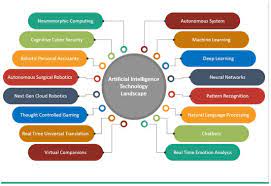
In the rapidly evolving landscape of artificial intelligence (AI) and machine learning (ML), content providers play a crucial role. As businesses and consumers alike seek to leverage AI technology to gain competitive advantages and improve efficiency, the demand for intelligent content that fuels these systems has skyrocketed.
Content providers for AI are companies or entities that create, aggregate, or curate data sets that are then used to train machine learning models. The essence of any AI system lies in its capability to learn from data, which means the quality and relevance of this data are paramount. Intelligent content can come in various forms, including text, images, videos, or structured data like product information or customer interactions.
The development of neural networks and deep learning has made the need for large-scale, high-quality datasets more pronounced. Content providers in the AI industry have had to evolve rapidly to meet these demands. They’re often tasked with collecting and processing vast amounts of information while ensuring diversity, accuracy, and relevancy—a complex challenge considering the nuances and subtleties involved in human languages and behaviors.
Additionally, ethical considerations play a huge part in this sector. As AI continues to grow more prevalent across different industries—from healthcare to finance to autonomous vehicles—content providers must consider issues such as bias, privacy, and security. Responsible AI is the goal; thus, content must be sourced ethically and legally.
Another segment within the AI content provider sector focuses on synthetic data generation. Given the scarcity of certain types of real-world data or the challenges in obtaining them due to privacy concerns or logistical difficulties, synthetic data provides a powerful alternative. Through techniques such as generative adversarial networks (GANs), content providers can produce realistic yet artificial datasets that help overcome real-world limitations.
Renowned tech giants like Google and Microsoft—as well as niche startups—are expanding their offerings as content providers for AI. The industry is witnessing a burgeoning market for tools that streamline content curation processes and facilitate efficient machine learning operations.
As we look ahead, the relationship between AI content providers and ML advancements becomes ever more symbiotic. Emerging paradigms such as federated learning may also change how we approach content provision by decentralizing data training without compromising user privacy.
In conclusion, content providers for AI represent a critical component of the machine learning industry’s value chain. Their work ensures that AI systems can learn effectively and ethically, turning raw data into intelligent intelligence driving innovation across countless domains. As AI technologies continue on their upward trajectory, adept content provision will remain at its core—an indispensable ally to intelligent systems worldwide.
